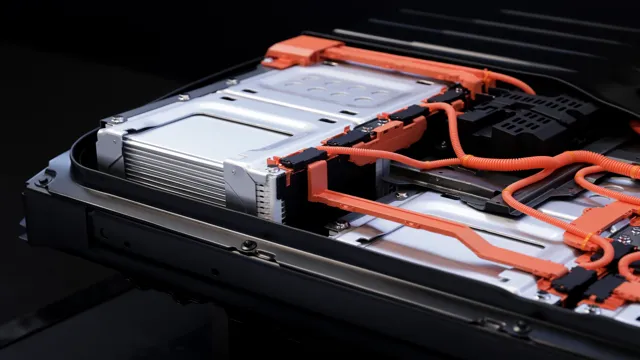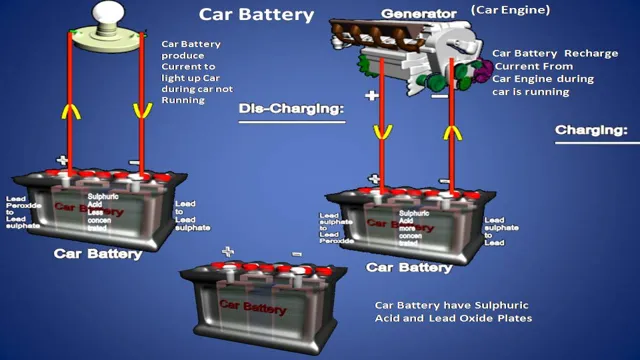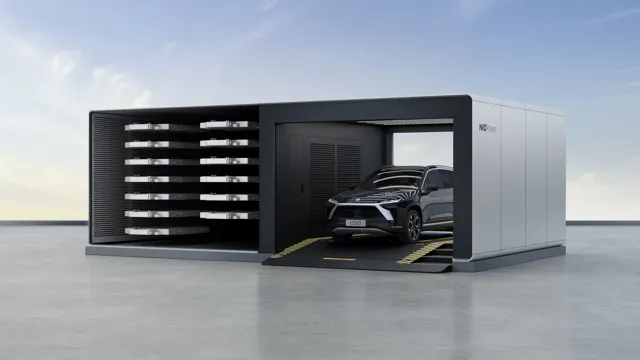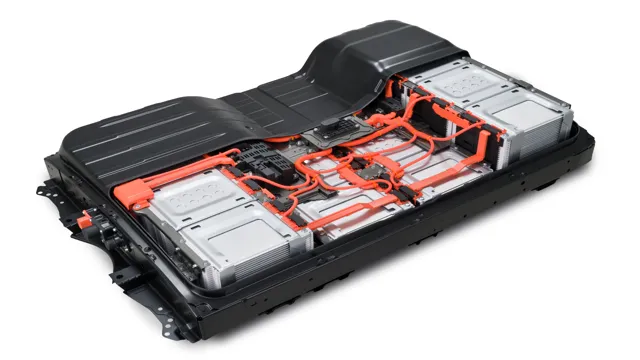Electric Cars Unplugged: Exploring the Differences Between Plug-in and Battery Electric Vehicles
Electric cars are becoming more popular as the world becomes more environmentally conscious. As the demand for electric vehicles continues to increase, people are faced with the question of what type of electric vehicle to purchase: a plug-in hybrid or a battery electric car. Each has its own advantages and disadvantages, and it can be confusing to know which one is the best choice for your needs.
In this blog post, we’ll explore the differences between plug-in and battery electric cars, helping you make an informed decision about which type of electric vehicle to choose.
Overview
When it comes to choosing an electric car, two options come to mind: plug-in and battery electric cars. While both have their benefits, they differ in a few significant ways. Plug-in electric cars are hybrids that can run on both electricity and gasoline.
These cars come with a smaller battery and use the gasoline engine as a backup when the battery drains out. On the other hand, battery electric cars are solely reliant on electricity and have larger batteries. The lack of gasoline engines in the latter makes them more energy efficient and eco-friendly, while the former offers the convenience of having a backup if you ever run out of battery.
Additionally, there’s a difference in charging times and infrastructure. Plug-ins can be charged at home or at public charging stations, while battery electrics require fast-charging stations that may not be as readily available yet. Overall, the choice between the two depends on your lifestyle and personal preferences.
Whether you prioritize eco-friendliness or convenience, both types offer an excellent alternative to traditional gas-powered cars.
Definition of Plug-in and Battery Electric Cars
Plug-in and Battery Electric Cars are two types of electric vehicles that are becoming increasingly popular as the world moves towards a more sustainable future. Plug-in electric cars rely on electricity from the grid to power their electric motor and typically have a smaller battery which requires recharging after a certain distance. Battery electric cars, on the other hand, solely rely on their larger battery capacity and have no backup engine that uses petrol or diesel.
The difference between these two types of electric vehicles lies in their dependence on external power sources. Both types of vehicles have their advantages and disadvantages, so it is essential to choose the right vehicle that suits your lifestyle and needs. For example, if you are planning on using the vehicle for extended distances, a plug-in electric car might be a better fit for you, whereas, if you are environmentally conscious and prefer reducing your carbon footprint, a battery electric car might be a better alternative.
In any case, both plug-in and battery electric cars are excellent options for people who want to contribute to a more sustainable future while enjoying the perks of modern travel.
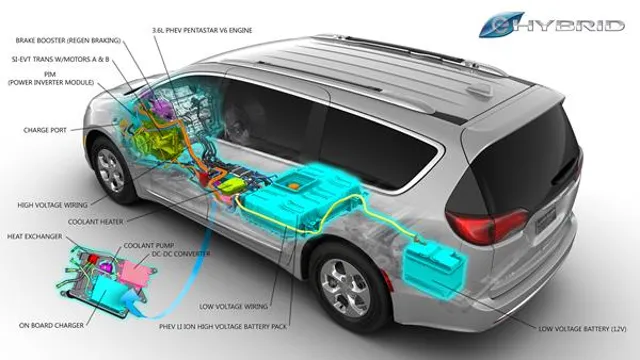
Benefits of Electric Cars
Electric cars have become increasingly popular in recent years due to the numerous benefits they provide. One of the most significant advantages of electric cars is their environmental impact. These vehicles produce zero emissions, making them an excellent choice for reducing your carbon footprint.
Not only are electric cars better for the environment, but they are also more cost-effective for the driver. The cost of electricity is typically much lower than gasoline, providing savings in the long run. Beyond cost-savings, electric cars require less maintenance since they have fewer moving parts and do not require oil changes.
Additionally, electric cars offer a quieter and smoother ride. Overall, the benefits of electric cars make them an attractive option for anyone looking to make a positive impact on the environment and save money on transportation costs.
Plug-in Electric Cars
Many people confuse plug-in electric cars with battery electric cars but there is a significant difference between the two types of vehicles. A plug-in electric car is a hybrid car that uses both an electric motor powered by a battery and a gasoline engine. The gasoline engine is used as a backup power source when the battery runs out of power.
On the other hand, a battery electric car relies solely on electric power. The car is powered by an electric motor and a battery that needs to be recharged from time to time. Unlike plug-in electric cars, battery electric cars do not have a gasoline engine.
Ultimately, the choice between the two types of cars depends on individual preferences and needs. If you are looking for a car that can run on electric power and gasoline, a plug-in electric car might be the best option for you. However, if you are looking for a vehicle that is powered solely by electricity, a battery electric car is the way to go.
How They Work
Plug-in electric cars are becoming more popular as people look for more sustainable and eco-friendly transportation options. These cars have rechargeable batteries that power an electric motor, allowing them to run on electricity alone. The batteries can be charged by plugging the car into a regular power outlet or a special charging station.
Many plug-in electric cars have a range of up to 300 miles on a single charge, making them a practical option for daily use and longer road trips. Additionally, these cars produce zero emissions, which is better for the environment and reduces dependence on fossil fuels. With more automakers investing in electric car technology, it’s clear that plug-in electric cars are the future of transportation.
Charging and Range
When it comes to plug-in electric cars, one of the biggest questions drivers have is about charging and range. Fortunately, the technology has improved over the years, and today’s electric cars are capable of traveling much farther on a single charge than they were even just a few years ago. However, it’s important to keep in mind that range is affected by a number of factors, including driving conditions, temperature, and freeway speeds.
So, it’s important to plan out your route and charging stops ahead of time to avoid getting stuck with a dead battery. Additionally, many electric cars can be charged at home using a standard outlet, although it may take several hours to fully charge the battery. To reduce charging times, some owners opt for professional installation of a 240-volt charging station in their garages.
With these options, you can enjoy all the benefits of electric driving without worrying about running out of juice on the road.
Cost
When it comes to cost, plug-in electric cars have a reputation for being more expensive than their gasoline counterparts. While it’s true that the sticker price of EVs can be higher, there are several factors to consider that make them more affordable in the long run. Firstly, electric cars are much cheaper to maintain since they have fewer moving parts and require less regular servicing.
Secondly, the cost of electricity is much lower than gas prices, which means that you’ll end up spending significantly less on fuel. Additionally, many states and the federal government offer tax credits and incentives for electric vehicle purchases, which can help offset some of the upfront costs. Overall, while buying an electric car may be a bigger investment upfront, it can save you money over time and ultimately be a more cost-effective choice.
Battery Electric Cars
When it comes to electric vehicles, there are a few different types to consider. Two popular options are plug-in electric cars and battery electric cars. While both are fully electric and don’t rely on gasoline, there are some key differences that set them apart.
Plug-in electric cars, as the name suggests, require a plug to charge their batteries. They have a smaller battery than a battery electric car and typically have a gas engine to supplement the electric power. On the other hand, battery electric cars are entirely electric and rely solely on their battery to power their electric motor.
They have a larger battery than a plug-in electric car but may require longer charging times. The choice between the two will depend on your needs and preferences, including the range you need, the charging options available to you, and your budget.
How They Work
Battery electric cars are a type of electric vehicle that runs purely on electricity stored in rechargeable battery packs. Unlike hybrid cars, which have both an electric motor and a conventional gasoline engine, battery electric cars rely entirely on electric power for propulsion. A powerful battery pack that is positioned under the car’s floor provides the energy to power an electric motor, which drives the wheels.
These vehicles don’t emit any tailpipe pollutants since they produce no exhaust. Charging the battery can be done in a few ways, including using a standard electric outlet, a dedicated charging station, or regenerative braking technology, which converts energy used during braking back into electricity to recharge the battery. Battery electric cars are quiet, energy-efficient, and produce zero emissions, making them an eco-friendly commuting option.
Charging and Range
Battery electric cars are becoming a popular choice for people who want to reduce their carbon footprint. However, one of the biggest concerns for potential buyers is charging and range. Electric cars require electricity to run, so charging is a must.
Fortunately, charging stations are becoming more common in public places like parking lots, malls, and gas stations. There are also options for home charging, including level 1 and level 2 chargers that can be installed in your garage. The amount of range you can get on a single charge depends on many factors, including the type of car, the size of the battery, and driving conditions.
On average, most battery electric cars can go between 100 and 300 miles on a single charge. Of course, this range will vary depending on how the car is driven and how often it is charged. While electric cars still have some limitations, advancements in charging technology and battery capacity are making them more viable for everyday use.
So, if you’re considering buying an electric car, do your research on charging options and range to make sure it fits your lifestyle.
Cost
When it comes to the cost of battery electric cars, there are several factors to consider. For starters, the upfront cost of purchasing an electric car tends to be higher than a gas-powered vehicle. However, this cost is offset over time by the lower cost of electricity compared to gasoline.
Additionally, electric cars require less maintenance and have fewer parts to replace, which can save money in the long run. It’s also important to note that some states offer tax rebates and incentives for purchasing an electric car, which can help to lower the overall cost. Overall, while the initial cost may be higher, the long-term savings in fuel and maintenance costs make owning an electric car an attractive and cost-effective option.
Which is Better?
If you’re considering buying an electric car, you might be wondering what the difference is between a plug-in and battery electric. Essentially, plug-in hybrids have both a gasoline engine and an electric motor, whereas battery electric cars solely run on electricity. Plug-in hybrids can switch back and forth between gas and electric power, while battery electric cars need to be recharged.
Plug-in hybrids offer the convenience of being able to refuel at gas stations when electric power isn’t available, but they don’t have the same sustainability benefits as battery electric cars. On the other hand, battery electric cars emit zero emissions and can save you money in the long run on fuel costs. Ultimately, it comes down to your personal preferences and lifestyle when deciding which type of electric car to purchase.
Conclusion
In summary, choosing between a plug-in and battery electric car ultimately comes down to personal preference and lifestyle needs. The plug-in offers the convenience of gas backup for longer trips, while the battery electric offers the simplicity and environmental benefits of being fully electric. Both options are great for reducing emissions and saving money on fuel costs.
So, whether you’re a road warrior or an eco-conscious commuter, there’s an electric car out there for you. Just remember, whichever you choose, the real power comes not from the vehicle, but from the driver behind the wheel.”
FAQs
What is the main difference between plug-in and battery electric cars?
Plug-in electric cars have a gasoline engine that supplements the electric motor, whereas battery electric cars are solely powered by an electric motor and do not have a gasoline engine.
Are plug-in electric cars more expensive than battery electric cars?
Generally, plug-in electric cars tend to be more expensive than battery electric cars due to the additional gasoline engine.
Which type of electric car is more efficient?
Battery electric cars are generally more efficient than plug-in electric cars because they do not rely on a gasoline engine and can solely rely on the electric motor for power.
Can plug-in electric cars travel longer distances than battery electric cars?
Yes, plug-in electric cars can generally travel longer distances than battery electric cars because they have both a gasoline engine and an electric motor.
Is it more environmentally friendly to own a plug-in or battery electric car?
Battery electric cars are generally more environmentally friendly because they do not rely on fossil fuels and have zero emissions, whereas plug-in electric cars still rely on gasoline and release emissions.

